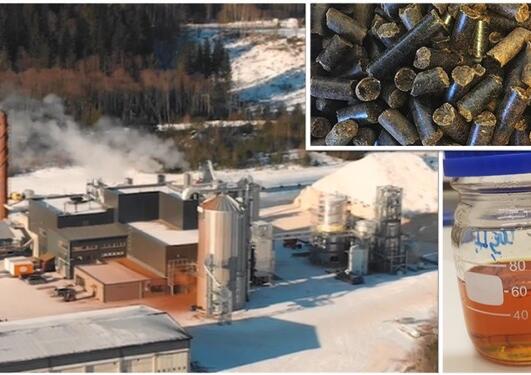Watch 'A biorefinery approach to renewable energy and chemicals' here!
Dag Helge Hermundsgård, Research assistant, Department of Chemistry (UoB) will give us insight into a biorefinery approach to renewable energy and chemicals
A biorefinery approach to renewable energy and chemicals
Main content
One of the most important areas of research in the current and coming years will be on innovative technologies that can help us meet the increasing energy demand in the world using sustainable resources. Facing the looming threat of climate change and the phasing out of fossil fuels, we need a way to cover the demand for both energy and chemicals that at present is covered through the processing of fossil fuels. In a sea of promising technologies for energy production the concept of a wood based biorefinery stands out as a way of covering both these needs within a single industrial production plant. ArbaOne is a pilot plant for such a biorefinery concept. Utilizing wood shavings from sawmills and forestry residues, the plant uses a physiochemical pretreatment method called steam explosion, where saturated steam at high pressure and temperature is used to break down the cellulose and hemicellulose structures in the wood. After this process the broken-down wood can be packed into pellets that have similar properties to that of coal and can therefore be used in coal powered power plants to replace the heavily polluting coal. The steam explosion process also brings about several side streams that contain a range of chemicals derived from hydrolysis of the biopolymers in wood. These include platform chemicals like furfural and HMF as well as residual free sugars that can be used for biotechnological processing, e.g., to grow protein rich fish feed.
Research on the concepts described here is supported by the Horizon2020 program through the Arbaheat project, and by the Norwegian Research Council in the ArbaBioRef and ArbaFeed projects and my industrial PhD project.
Webinar speaker
Dag Helge Hermundsgård, Research assistant, Department of Chemistry, University of Bergen
